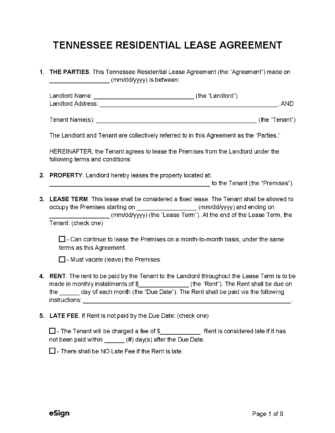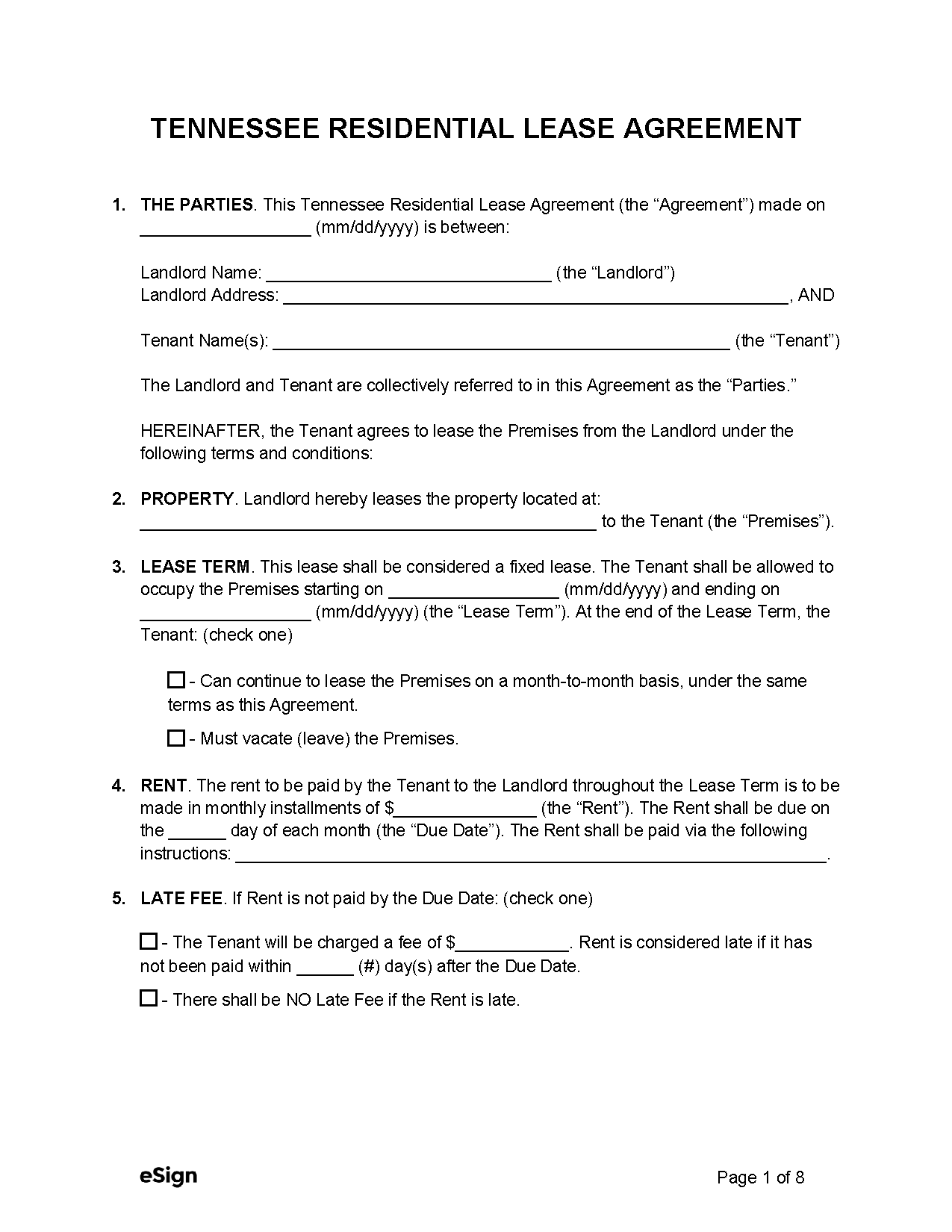Required Disclosures (3)
- Landlord Information – Tenants must be provided the address and name of the agent authorized to manage the rental, and those of the owner or their agent.1]
- Lead-Based Paint Disclosure (PDF) – Property owners must complete this form if a building was constructed before 1978.[2]
- Showings – If the landlord wishes to show new tenants the space within 30 days of the end of a lease term, this right of access must be included in the lease.[3]
Security Deposit Laws
- Maximum Amount – No statutory limit.
- Returning to Tenant – A landlord must notify the tenant of any balance due. If the tenant does not respond within 60 days, they forfeit their security deposit.[4]
Rent Grace Period
Tennessee has a five-day grace period that landlords must respect before they can charge late fees.[5]
Landlord Resources
- Uniform Residential Landlord and Tenant Act – Title 66 – Ch. 28
- Handbook (Guide) – Do You Know Your Rights and Duties As a Renter?

